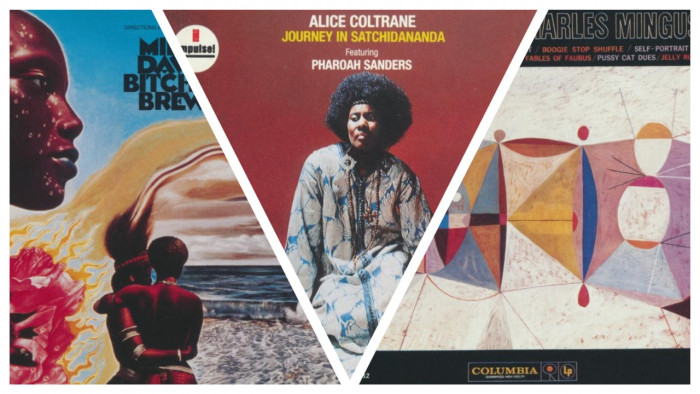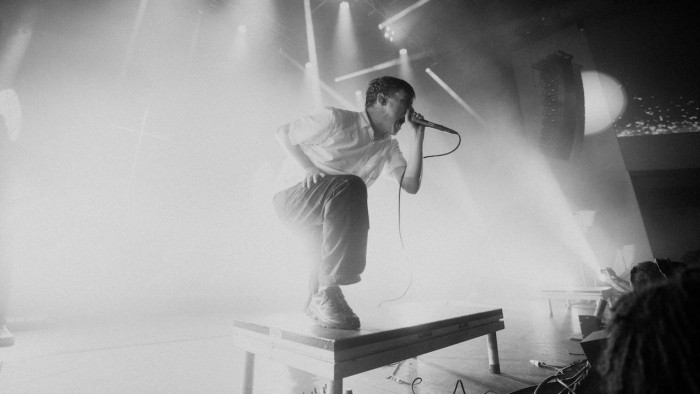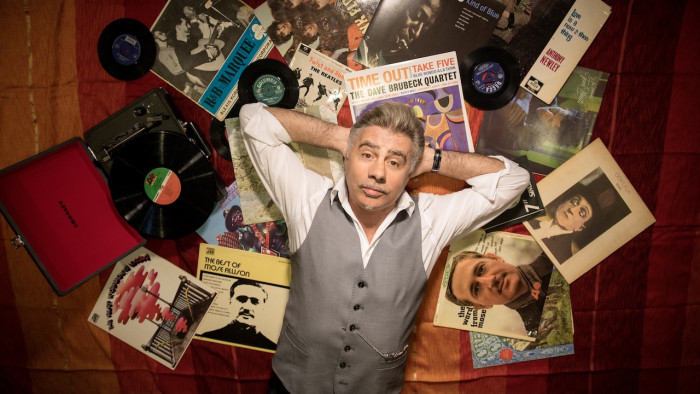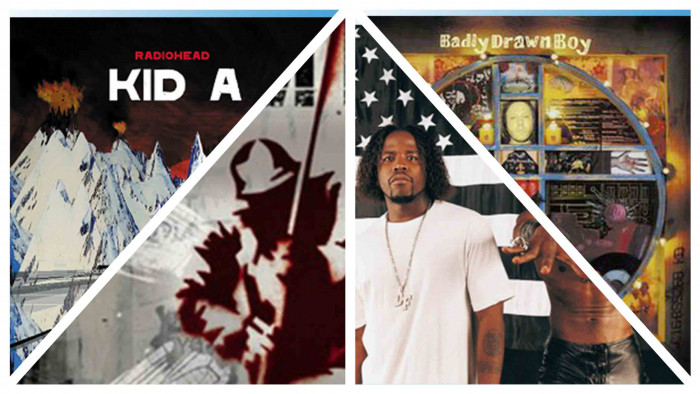Mercury-nominated solo artist (and former Supergrass frontman) Gaz Coombes is playing a free gig for ShortList readers this week. Jonathan Pile meets him
Britpop survivor Gaz Coombes has a complaint to make: “The other day I was referred to as a Britpop survivor. That was a bit weird. Is it even a compliment? F*cking hell, can you really not think of another way of describing where I sit musically?”
Let’s try it. Reinvigorated solo artist Gaz Coombes? Oxfordshire troubadour Gaz Coombes? Britpop survivor Gaz Coombes? Oh, wait, that one’s banned. Maybe we should just get him to do it.
“I can’t actually. Struggling musician with a minor drug problem? [Laughs] I suppose I’m finding my way. But that’s why it’s so magical making music. I was just sat in my basement and made a bit of a mad record. It could have been nonsense. But when I finished it, I knew it was strong. I knew something had happened.”
He’s talking about Matador. Released this year, it’s his second solo album since Supergrass split up, and easily his most successful. In fact, it’s just been nominated for the Mercury Prize. “I was blown away,” he admits. “I love the record, but I didn’t think it would be nominated. It’s bonkers really.”

I don’t need to be a millionaire, I just don’t want to work in a kitchen
Coombes is now undeniably a solo artist in his own right. Supergrass called it quits five years ago and, after disappointing reviews and slow sales for his first post-split record Here Come The Bombs (“I was still transitioning, but you’ve got to start somewhere”), the reaction to Matador has thrust him back in the spotlight. And this time there isn’t a bed on wheels on Portmeirion beach in sight.
Going it alone
The expectation is, after a band splits up, solo albums from its higher profile members will follow. Generally, they do. Noel Gallagher did it. Richard Ashcroft did it. Brett Anderson did it four times. Four. (You probably don’t remember any of them. That’s why Suede are back together.) But Coombes claims his solo career was by accident rather than design.
“I just started writing. I don’t have anything else, there’s no back-up plan. What else can I do?”
But not being tied to Supergrass has given him creative freedom. He can do whatever he wants. He mentions Beck and Frank Black as inspirations because he doesn’t believe you can “pigeonhole” them to one type of music. But it’s more than exploring different music. He’s escaped the corporate pressures of EMI – there’s no one asking him where the singles are any more.
“With Supergrass it was about the hits. And the pressure to write more hits. With Matador there was nothing I had to keep up with. It was a blank page. So I went into it thinking, ‘What do I want to hear?’ and trusting myself it’d be what other people want to hear, too.”
And so far it’s worked, especially within the limits of his modest, self-set expectations – that the record just does well enough for him to make another one (“I’m not asking to be a millionaire. I just don’t want to work in a kitchen again”). It’s done more than that, and not just because of the Mercury nomination. The songs are going down a storm at his live shows, too.
“I’m really feeling it onstage,” he says. “Everything’s aligned and everything’s connecting. I get the feeling people are excited to hear 20/20 and are excited to hear Buffalo. We’re hitting our peak, so it’s a good time to catch us.”
This is good news for everyone concerned. Gaz Coombes is the latest artist to sign up for our 48 Hours To… gigs – he’ll play a free show in Manchester tonight. A good location, it turns out: “I’ve had a long love affair with playing there since I was 15 years old and travelled up in a van with [his first band] The Jennifers. And, of course, there’s the impact the city’s music scene had on me as a kid.”

Britpop bypass
Wherever Gaz Coombes goes, and whatever he does musically, the spectre of Supergrass will follow. He’ll always be asked about that time. And even as he’s promoting Matador, he’s competing with himself – albeit a version two decades younger. This year marks the 20th anniversary of the band’s debut I Should Coco, which has been remastered for a re-release.
“I made it clear, not in a disrespectful or awkward way, that I have Matador, so I have to focus on what I’m doing now. But I am really proud of that record. To think what we did at that age – it’s a f*cking great album. I listened to it recently – it’s really fresh and energetic. And I do want more people to hear that record – for a new generation to know it wasn’t all just Oasis and Blur. That there were some other cool things going on. But we bypassed the Britpop thing. We were never part of that.”
This can’t be true, can it? Surely Supergrass were one of the quintessential Britpop bands? And that if in the completely implausible situation that you had to create a Britpop band in a lab, those three lads from Oxford, messing about on bikes and singing about keeping their teeth clean would be almost exactly what you’d end up with?
“I think any band that came out between ’94 and ’99 was seen as a Britpop band,” Coombes counters. “We just had a big hit at its peak.”
Talk turns to the band’s final years, and the split. Although they do remain friends (“Mick came round for a cup of tea the other day”), a seventh album remains unfinished. “There’s nothing more powerful than a band who are together and unified. Towards the end, we weren’t such a powerful thing. It became quite diluted. Supergrass lost that connection.”
Supergrass bypassed Britpop. We were never a part of it. We just had a big hit at its peak
The future
Apart from being a musician, Coombes leads the life of a normal 39-year-old. He takes his kids to One Direction concerts and does the school run – his latest plan is to initiate an Album Of The Week, where he plays one classic record in the car, and nothing else, so his kids are exposed to other things. He’ll start with The White Album.
He also has a studio in his house, and he splits his time between working there and, as he puts it, “procrastinating”.
“It’s one of my flaws. I think, ‘I’m going to nail that Kubrick collection in the next couple of days,’ and then I get to the end and think, ‘What have I done? I should have been in the studio.’ But it’s all creative. I had a phase of getting into history. Just reading through history books. I don’t know if my head’s in tune, though – I’m terrible with facts. I wish I had the sort of brain that could retain facts, like the wonderful Stephen Fry. I don’t have that. But I can retain riffs. Retaining riffs – that’s my thing. But history is full of mad stories and you think, ‘How the f*ck was it like that?’ Kings and queens and all these f*cked up relationships and battles and wars. It’s so fascinating.”

But the plan is, of course, more music. And getting people to hear it (“F*ck it, they can download it illegally if they want”), because he sees himself as a new artist, having to prove himself over again.
“I’ve got to remain on my toes. If things were too comfortable, then there wouldn’t be something to fight against. It’s always about light and dark, self-doubt and confidence. There’s never a middle ground. That’s what’s really mad about life. I’m never particularly comfortable emotionally. But I’m all right with that.
“I can’t rest on what I’ve done. I can’t feel too safe. And I can’t be afraid to fail.”
Good advice. But it seems, in 2015, Gaz Coombes has survived Britpop and is doing just fine.
Photography: Matt Holyoak










